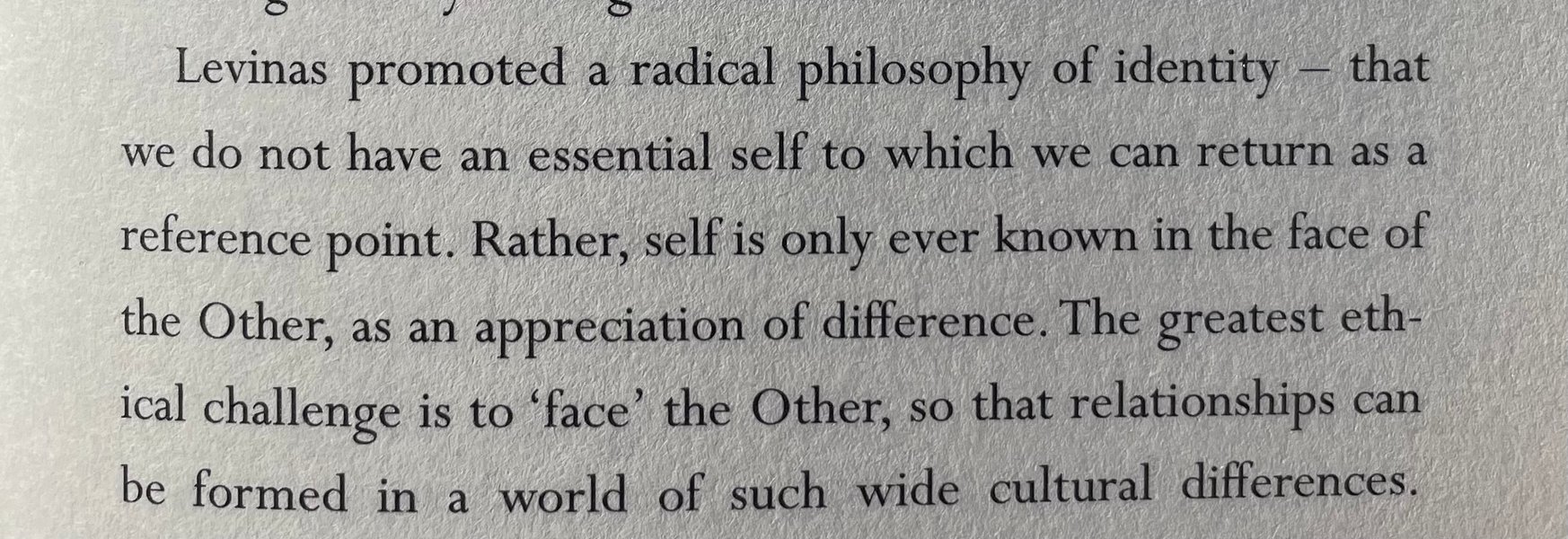Sublime
An inspiration engine for ideas


The psychologist James Marcia argues that there are four levels of identity creation. The healthiest people have arrived at what he calls “identity achievement.” They’ve explored different identities, told different stories about themselves, and finally settled on a heroic identity that works.
David Brooks • How to Know a Person: The Art of Seeing Others Deeply and Being Deeply Seen

Infant (hope)—trust versus mistrust Toddler (will)—autonomy versus shame Preschooler (purpose)—initiative versus guilt School-age child (competence)—industry versus inferiority Adolescent (fidelity)—identity versus role confusion Young adult (love)—intimacy versus isolation Middle-aged adult (care)—generativity versus stagnation Older adult
... See moreLori Gottlieb • Maybe You Should Talk to Someone: A Therapist, HER Therapist, and Our Lives Revealed
Charles Segal, a recently retired Harvard professor of classics who taught my Greek Tragedy course, spoke about how the Oedipus trilogy reminded him of Erik Erikson’s three stages of development. In youth, Professor Segal said, a person struggles to figure out who they are in relation to their parents (a real head scratcher in Oedipus’s case). In
... See moreSuzanne Koven • Letter to a Young Female Physician: Notes from a Medical Life
The theory of compensation that these figures supposedly exemplify begins with Alfred Adler, the third, least-known, and shortest-lived member of the great therapeutic triumvirate of Freud, Jung, Adler. His studies of gifted personalities universalized the idea of compensation into a basic law of human nature. His evidence, gathered in art schools
... See moreJames Hillman • The Soul's Code
For many of us there’s a moment in life, often in adolescence, when the life task is to establish your social identity. Friendships and social status become the central obsessions in our lives. At this point, Erikson notes, the person will either achieve intimacy or suffer isolation.
David Brooks • How to Know a Person: The Art of Seeing Others Deeply and Being Deeply Seen
and shifting character of identity. 15. Erikson’s paper, “Womanhood and the Inner Space,” published in 1968, seems to suggest that the crux of a woman’s identity is the partner she chooses (i.e., who she admits to the “inner space”). In this paper, much maligned by feminists, Erikson also recognizes that options at the time were limited for women
... See more